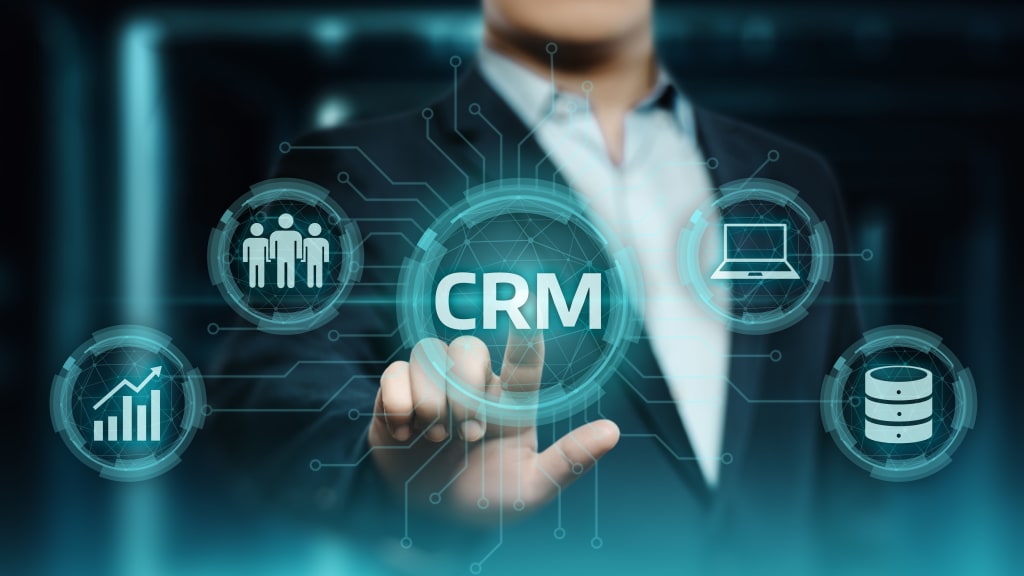10 Key Benefits Of A CRM Platform

Today, businesses rely on technology and tools to make their operational processes more effective and efficient. One crucial tool to achieve this is using customer relationship management (CRM) software. Many companies and startups hesitate to invest in them due to the initial investment and the perceived learning curve involved, often due to limited internal resources. But fortunately, the time has come when businesses of many types and sizes have realised that the benefits the software offer outweigh the costs. Needless to say, it's now a must-own management tool in their arsenal in 2022.
What Is A CRM?
In a nutshell, CRM software basically consolidates all the business transactions and activities your company performs with your clients and prospects. The platform tools are created to build relationships with customers. CRM systems offer many functions and features for your operations to become smoother and more organised.
Hubspot's CRM definition is "CRM software is a system for managing your relationships with customers".
You can use CRM software to keep track of interactions, data, and notes about customers or potential. The data is stored in a central database and is accessible to multiple people within an organisation.
A CRM helps streamline sales, marketing efforts, customer service, accounting, and management for growing companies. Multiple people can access and edit the information about a particular client’s customer journey."
Several departments can maximise their strategies and data, streamline procedures, and finally convert more sales. Ultimately, using these platforms result in having an easy way to engage and communicate with loyal and potential consumers. This is the best technology you can use instead of sticking to conventional spreadsheets that only entail errors and inaccurate data.
Why Spreadsheets Are Holding You Back
Spreadsheets have historically been used for tasks such as budgeting, data analysis, payroll and accounting services. Although, due to its large data storage, small-to-medium sized businesses managed to find creative ways to utilise this by using spreadsheets as a database option and in some cases even a task management system. When it comes to storing and interfacing with your customer's information however, a spreadsheet will no longer cut it.
And so, spreadsheet developers upgrade their software to accommodate these new use cases but still, a spreadsheet as a CRM is not enough as managing customer data has a lot of complexities involved. Your organisation will do better by using a full-blown CRM system instead of a customised spreadsheet.
How To Grow Better With A CRM
To maximise your chosen CRM tool, it's better to start exploring all its features from the get-go. You can use the features relevant to your business now. But don’t discount the added options (e.g., backup, third-party integrations, scheduling, and others) for later. Give leeway for the possible use of these extras. In this way, as your business grows, you can scale up your CRM workflows with fewer hiccups.
10 Benefits Of A CRM Platform:
1. Improves Customer Experience
CRM platforms like HubSpot CRM or other credible software provide access to customer data and information, allowing the viewer to decipher and understand customers' behaviour and background. Through such information, your business can provide personalised support, making the customer feel happier and fulfilled. CRM allows you to be notified when there are inquiries, complaints, and other concerns from customers.
Whatever medium they use, you'll be able to realize them and respond faster than without using this technology. CRM automates customer replies, allowing them to resolve concerns and get rid of customer dissatisfaction. Through a speedy service, you enhance customer experience, which increases satisfaction.
2. Automates Data Recording
A CRM ensures that your team won't have to go through tedious tasks like logging customer emails, interactions, and calls. CRM software can automatically do this trivial task for them, freeing up more time on their hands. This allows them to perform or focus more on the business tasks that are more relevant for their time. Furthermore, CRM also enables data updating, so rest assured that everyone in the company can access the newest information.
3. Allows Sales Team To Do Target-Selling
Much like offering personalized customer service to support and help solve customer concerns, CRM also is advantageous for salespeople. The sales team can target and reach out to their leads, knowing their interests better. They can email, call, and offer whichever products the consumers are most likely in need of, based on the information provided on CRM.
The sales team can save time studying which customers or prospects will buy the company's products. Through customer records, purchase history, and other data, they can offer existing customers products that they've purchased before. When the sales team is proactive, your company will benefit from the target selling strategy.
4. Lets You Get To Know Customers Better
A CRM tool is potent because all your contact information is in one place. It can serve as your guide or job aid to how you can communicate and handle your customers. The data provided on CRM benefits many departments, such as customer service, sales, and marketing. They can figure out and apply the most effective strategies based on the customer information gathered on the platform.
Little information about the consumer can change things positively, especially when it allows the person to feel special and appreciated. You can get to know the customer better by storing valuable customer data. This allows the staff to offer personalized services to them too. It's easy to personalize your correspondence when you have all this information at your fingertips.
5. Improves Internal Communication
Implementing CRM strategies improves communication within an organization. It's one of several significant benefits of a CRM platform to share customer data between different departments and improve the customer experience. Collaboration becomes more accessible when everyone can quickly contact each other in the company. Various departments can share projects and customer data to ensure the best customer experience. The company's efficiency will be increased, and customers will receive better service when the team is well informed.
6. Allows You To Analyze Everything
Strategies are very crucial, so it's essential to be able to check and analyze their efficacy. Fortunately, CRM software allows you to do that. Analyzing your performance this way makes it a lot easier. The software will offer insights into what strategies convert more leads and sales. This will guide the marketing and sales department to modify or change their existing strategies.
7. Increases Chances For Cross-Selling
To increase sales, one must sell new products to regular customers and acquire new customers. You can track a customer's purchase history, and the sales funnel they're currently in. Your sales team can spot which ones can be converted soon and which ones are more likely to buy other products or services.
You can cross-sell related products and services when you know what products they've purchased. By relying on data gathered on CRM, sales staff can implement cross-selling strategies to the right customers and prospects. This decreases the likelihood of rejected offers and annoyed customers.
8. Increases Customer Retention
Enriching customer experience equates to satisfied customers, which leads to retaining them. As well as being a great way to find and cultivate new customers, CRM is also a great way to keep existing ones happy. While some salespeople forget to nurture and maintain their current customers, CRM can help them stay in touch with their loyal clients. You will be reminded about upcoming appointments and when to follow up on emails.
9. Optimizes Marketing
You can only make a lasting impression on prospects and customers through niche marketing today. Thankfully, CRM can help you achieve results. CRM marketing can be very diverse and specific based on your target customer. Your business can perform individualized marketing strategies based on your client’s preference, data, and accessibility.
10. Makes It Easy To Generate And Convert Leads
Sure, there are many means to gather leads that can be converted by applying the right strategies. However, the best thing about using CRM is it's well-organized to create a sales funnel so you can track down the conversion process of each customer. Without this system, it can be difficult to guess your prospect's stage in the buying process. Using CRM will make it easy to optimize your lead generation efforts.
Conclusion
CRM platforms make it possible for all the team members to gather insights and data which they can all share to ensure customer satisfaction. As mentioned in this article, using this technology offers excellent benefits. Tasks can be automated, processes become smoother and more efficient, and your customer pool becomes more considerable.
As Hubspot Solutions Partners Splash Digital can help you make the change from spreadsheets to a robust CRM tool for your admin, sales and marketing teams. Come talk to us on 09 300 7336 or email enquiries@splashdigital.co.nz.
